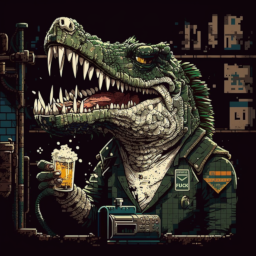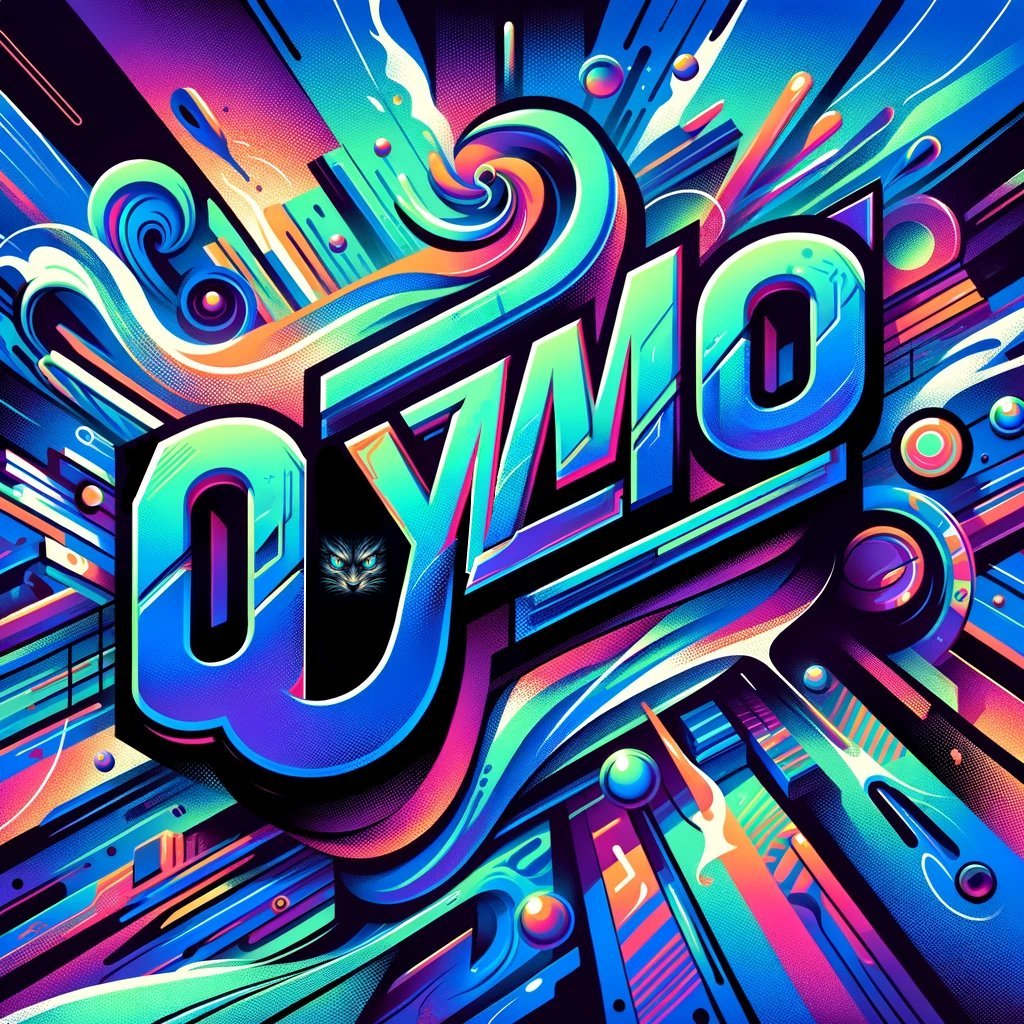I prefer pressing buttons and turning nobs in the car.
It’s actually safer to have tactile buttons, too.
My old civic is so nice.
One of the many reasons I’ll hang onto my 2012 Toyota Corolla until I drive it into the ground. It has a touch screen for just the radio and Bluetooth, but it must be some sort of gen one prototype because it’s pretty awful. Thankfully, everything else is tactile. I can’t imagine giving it up.
Fwiw, I’ve just got a '22 corolla and everything has a physical button. I love it.
Don’t get me started on those fucking digital handbrakes
Those fucked me up so much when learning to drive. Ah yes let’s try starting uphill with the handbrake. Could not do it because I had no fucking clue when it was going to release.
First time I had to do it in my dad’s car which has a normal handbrake I had zero issues.
My 2004 F150 just works, no guessing what button does what, twist the fucking knob.
TV.
I hate the smart-TV workflow, its a terrible user experience: Turn the TV on… wait for the smart-TV OS to load… land on an app menu… navigate around and choose an app… wait for the app to load… select a profile… wait for the list of shows to load… scroll almost endlessly through shows… choose a show, finally… wait for the video to load…
I miss when you turned the TV on and it was just instantly playing whatever channel you last had on, with one single interaction. I miss not having to make the conscious choice of what to watch and feel overwhelmed by so many options. I miss TV programs being a common experience, like an event, that everyone would be talking about together the next day, instead of everyone watching their own thing on their own schedule.
It was truly exciting to look forward to a weekly show on TV.
Except when you couldn’t know in advance when your show skipped a week and they had to play some crappy rerun of a completely different show.
A group of us used to meet every week to watch Twin Peaks. We’d unplug the phone, drink coffee, and eat cherry pie (or apple for a bit of variation). Then we’d watch the episode again having just recorded it and try to figure out wtf was going on. Happy days.
On the plus side people with jobs other than 9-5 can now be included in the experience.
If you haven’t used free Over-the-air TV these days you might be surprised that most cities have a few dozen channels of live TV right now. If your in a large metro area get the simplest of cheapest TV antennas, plug it into your TV, and do a channel scan. You’ll be surprised how many channels there are now.
If you’re in suburbs or rural, you’ll still likely have quite a few but may need a more substantial antenna.
I do have an antenna and get some decent channels with it
You can still do that by paying for cable.
I have cable. It doesn’t really work like that anymore. I used to be able to click through ALL the basic cable channels, catching a frame or two of every single channel, with zero delay between channels, all within like under a minute. These days every channel change or menu selection has a built-in delay of at least a second or two. Channel surfing just doesn’t vibe the same anymore. That form of TV is mostly if not entirely dead.
You’re not wrong, although I think I’d still have to wait for the smart-TV OS to load and navigate the menu to select the Cable input.
Software engineering.
Back in my day(™), it was an engineering role, where science reigned. Anyone even attempting “vibe coding” would’ve been rightfully laughed out of the room.
It’s a task that should take concerted effort, with specific goals and performance metrics in mind. Just getting the task done wasn’t and shouldn’t be good enough.
Along a slightly similar vein, I generally prefer CLI and terminal work to GUIs
I think the issue is that back then, you only did important things with software. Now there is so much code doing the same simple things. Like how many ways does a person need to input thier birthday… and every tool we use… if it is good it gets more and more expensive, and more and more cluttered as they try to expand thier market. So now a new cheaper tool that does the same thing gets written. I would bet 90 some % of code is copies of other code with scientifically meaningless difference. But someone has to write it all…
Uh oh. The ice carvers are complaining about the evils of refrigeration again…
Uh oh, the bad faith AI bros are conflating luddites with anyone that disagrees with them again…
Says the Luddite without an argument…
Because I’m not arguing, genius, because a group of people that categorically reject all dissent as an appeal to nature fallacy is a group not worth engaging.
Sounds like a self-defeating argument. So glad I could stand by while you beat on that straw man for a while. Feeling better after that li’l display, champ?
Again, not an argument. You sure seem to be projecting about strawmen.
Sure, kiddo. Whatever gives you that dopamine hit for being yet-another random internet douchecanoe.
“Hurr hurr… I’m right and I’ve decided you’re wrong because reasons. I’m not going to engage with anyone because everyone rejects my assertions that I’m right and everyone else is wrong.”
Uh huh. Real nuanced perspective you got there.
No this is LITERALLY the same argument made hundreds/thousands of years ago against writing and books. Its the same argument the amish use. It IS the luddit pinnicle argument.
That’s right, the anti AI people are making literally the same arguments about why writing is bad. I am so smart.
You do not understand what quality code is if you think the current or previous generations produce anything but shit when it’s not a 1-1 copy of someone’s project it digested.
You do not realize how many businesses operate every single day and make plenty of money on suboptimal code.
Industrial scale everything does not care, so long as the job gets done and the invoice is paid.
Just like with every other profession made obsolete by technology, the 80% case won’t need your bespoke, hand-crafted, artisanal assembly. There will still be minority cases who will pay a premium for it. And plenty of people will still program as a hobby or for their local community. But industrial scale software will be written by bots.
Because the world runs on good enough. No matter how many elitist neckbeards get butthurt in the process.
many countries need to go back to reasonable inconvenience for superior and ethical product. same-day shipping is accelerating the speed of climate change so no you don’t get to have it actually. no, fruits and vegetables are not available 24/7, seasons matter again. etc and etc. we need to go back to all of this. we have to reduce the strain.
I prefer how Nazis were dealt with in the past
It grinds my gears that programs are called ‘apps’ now. On phones it was normalized immediately, so, sure. Computers run programs, though, god dammit.
Something like 20 years ago, i assumed that every generation that comes after mine, will be so much better with computers, because they grow up with it. So that’s not true at all as it turns out. I remember working with 20is year old guys together and they they mostly had iphones. They told me that they are also into computers, gaming and stuff like that. The more i talked to them the more i realised that they have no idea what i was talking about. I explained one of them how to do a thing on his phone and he was super lost. It was worse thN explaining my mom something. He kept asking where he finds the app i’m talking about and i kept telling him that it’s not an app, it’s something you do on the phone. Yeah i get that, but i don’t have the app for that.
Microsoft have been calling discrete computer programs “applications” since at least the Windows 95 era, when Program Manager was replaced with the start menu. They’ve been inconsistently kinda-sorta doing so since even Windows 3.x, maybe even more, but nobody was closely paying attention back then.
It didn’t become the current situation of monkey-see-monkey-do until Apple started using the terminology heavily with the iPhone, as you have observed. But they actually cribbed it from good old M$, much as they’ve cribbed basically everything else they’ve done in the modern era from someone else and simply painted it glossy white.
Program is such a funny word when you remember it’s an analogy from radio and TV. Radio and TV are just delivery mechanisms for programs, which are the content and point of the medium.
You could define a podcast as an internet-delivered audio program.
In the UK, “programme” is used for events, TV shows, and schedules, while “program” is specifically used in computing contexts.
I feel this.
Greetings program!!!
Why? What is the functional difference between an application and a program?
The term was changed to application when Win 95 came out. An application runs over the API (Application Programming Interface) in Windows, whereas a program in MS-DOS ran straight off the motherboard.
Outside of Unix based programs, probably not a lot.
In terms of their functionality most programs are standalone applications rather than tools where you modify the programming flow of the data.
Dating. It’s hard to manufacture that initial spark in an app.
Lack of third places has been a real thorn in society, especially third places that you aren’t expected to spend money.
EDIT: I’ve just learned I was incorrect in my original comment below. Bars, taverns, nightclubs etc are included in third spaces according to Wikipedia. I guess I learned an alt definition at some point, or perhaps just a wrong definition.
The definition of a third place is that you can spend time there without the expectation of buying something. If you’re expected to spend money to occupy space, it’s not a third place.
(Fully agree that the loss of such spaces is killing us, though!)
Absolutely. Good point.
It’s like fishing. You throw a bunch of hooks in the water, see what happens. I did very well with online dating, until I found my forever girl.
I want back my Dumb TVs!! I dont want everything to be connected!
This is kind of niche, but I mix concerts for a living and newer consoles and shows are all scene based, every song has a scene, and most of the time every verse and chorus in the song has a sub scene. It is a breath of fresh air to be able to mix with no scenes and have to rely on pure skill and intuition. Those shows tend to have a better feel and be more energetic, albeit less polished. They are also more fun, and a little bit more stressful.
Cool. I had no idea this was a thing.
It is 1000 times more enjoyable to actually mix a concert than just click to the next scene.
I want a phone where I am able to reach the top and the bottom of the screen without shifting my grip. Also being able to comfortably store in a pocket would be nice
Yes! Make smaller phones! Why do they all have to be getting bigger and bigger?
I like the bigger phones (at least however big a pixel 6 is – that seems about a perfect balance to me). Good to view web pages and videos as well as to use as the nav for my motorbike and still fits in the pocket. I find the smaller phones just too cramped.
I think we all know the answer to that one.
And less weight and no camera cluster sticking out making the phone not lay flat when put down would be nice
i’m actually this close to just going back to a dumb phone.
Buy one
Pixel 10 Pro or Galaxy S25 both fit that bill
Those are both big phones. they do not
The S25 Plus/Ultra, and the Pixel 10 and 10 Pro XL are. The S25 and Pixel 10 Pro are small phones that can easily be used with one hand.
I would disagree. I have the pixel 4a5g which is pretty much the same size as the pixel 10, and in a normal grip there’s like an inch above and a centimetre below my thumb
Also I’m not even in the market for buying a new phone, I’m going to wait until this phone is dead before I buy one.
Using Windows - before onedrive, online integration, new control panel, telemetry. Using the internet - before tracking, bloated sites, paywalls, cookie boxes and ai garbage. Using my car - before telemetry, beep, driver “aid” systems.
Yessss
Long live Clippy!
I don’t like electric can openers. I strongly prefer to just use a manual one. I just see an appliance that has but one use and requires electricity to be tremendous waste.
I love my P-38 can opener. It was made 80 years ago and it’s still opening cans like tin foil.
Came here to rep the P38. What a boss of a can opener.
I didn’t even know electric can openers were a thing
Making things electric was the “adding AI” of 20 years ago. Make something that works more complex and difficult to use, but the future!
More like 40 years!
That said, I loved my electric opener from 92’.
There was a knack to it, but I could be done opening a can before someone even started with a manual opener.
Never seen back to the future? One in the opening scene.
Lol I must have forgotten about the can opener in the opener
Not to mention they’re kind of hard to clean! Electric can openers are the worst. When the top pops off, they often send the contents of the can all over, too.
Wow I have never had an electric can opener, are they common in home kitchens?
3000% honesty, you are right. It is a waste, using a good manual can opener is far more satisfying. Like the electricity needed for the electric one is miniscule at best but its still wasted since it rakes 10 seconds to open one with a manual. I get people who are differently abled and need these, but the average person gets no real value from an electric one.
I was given a manual one a few weeks ago with no instructions, check out this horror show:

I open cans with a flat head screwdriver and find it easier
I like leaving the last 2 or so cm of lid attached so the can and lid stay together. Can’t do that automatically (well, I could, but that juice isn’t worth the squeeze).
Im going to disagree but its a bit situational for me. I used manual but I have a dog that requires this prescription canned dog food and when its that often the electric makes a difference. Its funny because the cans have pull tabe but it leaves a lip and I like to get the whole mass out like the crappy jello like cranberry sauce.
I miss physically owning software, movies, and music, not having to pay a subscription for car features like heated seats or more horsepower. I miss getting a complete game that was usually mostly glitch free on day one you got it on CD/DVD.
Socializing.
No social media to distract people. Nobody staring a phones. Nobody recording themselves for streaming.
You memorized phone numbers or wrote them down. You called or got called to meet up at some place and everyone went from there.
True
Anything to do with the internet. I’d go back to 2010 in a heartbeat.
We were well into the internet in 2010…
Hell, we were well into the internet in 2000
I’d argue people were really starting to discover the Internet at about the smart phone boom and housing crash of 07/08. I was talking about Wikipedia with someone then and they stopped taking to me for a while. They thought I was saying something like Wiccan-pedo.
Yeah, I was there for pre-2000 internet. It was cool back then too. I just remember 2010 as the last era where the internet still felt fun. That’s all gone now.
I was deep into 4chan in 2003-2004…
I’d prefer to go back to an internet pre-YouTube where the Internet started to become corporate.
Bro, I had dial up in the early nineties…
I do not miss dial up.
Why did they want us to hear the handshake‽ Like there’s no reason we all would be able to pitch perfectly recreate a noise we haven’t heard in two decades.
Eeeeeeee brbrbrbbrbrll gzzzd
Ding-ur-ding-ur-ding brrp
cshshshshshshshshshshshshshshshshshshshshsh…Actually I quite liked that bit. It was reassuring and familiar and you knew it was working.
What I didn’t like was taking 20 minutes to download a tiny video, anyone picking up the phone instantly killing your connection including the software download you’d been watching download for the last 15 minutes and the cost per minute and unreliability that taught me to connect, download my email, open my messages page, on the forum, disconnect, write all the forum replies in notepad and email replies in my client, then dial up again, hit sync on the email client and paste all my replies back in the forum.
deleted by creator





















